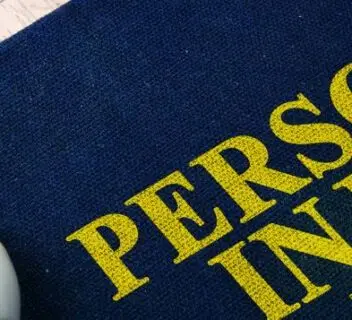When injured in a car accident knowing what to do when injured in a car accident immediately is crucial. This guide will help you stay safe, seek medical attention, document the scene, and navigate the legal and insurance processes.
Key Takeaways
- Immediately report the accident to authorities and ensure safety for all involved to prevent further hazards.
- Promptly assess injuries and seek medical attention, maintaining documentation to support potential insurance claims.
- Document the accident scene thoroughly and exchange information with other parties to facilitate the claims process and protect your rights.
Immediate Actions Post-Accident
The first step after a car accident is to stop immediately and assess the situation. Regardless of the severity, call 911 for emergency services. This ensures proper police documentation and accident reporting, which is vital for future claims or legal actions. If someone in your car is injured, call an ambulance to ensure they receive immediate medical attention.
Once the immediate danger has passed, follow these steps:
- If your vehicle is drivable, consider moving it off the road to prevent further hazards.
- Turn off your engine.
- Activate your hazard lights.
- If available, use road flares to alert other drivers.
- If your car is not safe to drive, leave it where it is.
- Make sure you and your passengers are in a safe location.
Do not admit fault or sign any liability documents at the scene, as this could impact future legal proceedings. Remember, your safety and the safety of others around you are the top priority. Following these steps helps prevent further damage and ensures the scene is secure for everyone involved.
Assessing Injuries and Seeking Medical Attention
Once everyone’s immediate safety is ensured:
- Assess injuries and seek medical attention promptly.
- Even if you don’t feel hurt immediately, see a healthcare provider since some symptoms can appear days later.
- Be aware that delayed symptoms such as pain, discomfort, dizziness, and numbness can be indicative of a serious injury.
Immediate medical treatment is important because:
- It ensures your well-being.
- It creates an official link between your injuries and the accident, which is crucial for insurance claims.
- A hospital can conduct tests, including X-rays, to determine the extent of your injuries and provide suitable treatment.
- Keeping all medical records and receipts is crucial for substantiating your claim.
Maintaining a personal injury journal can be incredibly beneficial. Here are some key points to consider:
- Document your symptoms, medical visits, and any changes in your health.
- This record can serve as valuable evidence if you need to pursue a personal injury claim.
- Prioritize getting the medical care you need immediately after the accident to ensure your health and safety.
Documenting the Accident Scene
Thoroughly documenting the accident scene can significantly strengthen your case with insurance companies or in legal proceedings. Start by taking photographs of the scene from multiple angles, including vehicle damage, road conditions, and any relevant traffic signs. These pictures can provide a clear, visual account of the collision and are invaluable for future claims.
Gather contact information and statements from all drivers and witnesses at the scene. Witness statements can be particularly helpful in corroborating your account of the events. Note the make, model, and license plate numbers of all vehicles involved. This detailed information will be essential when filing your police report and insurance claims.
Meticulous documentation of the accident scene provides concrete evidence supporting your version of events. This step is crucial for ensuring that your rights are protected and that you have all the necessary information to support your claim.
Exchanging Information with Other Parties
Exchanging information with other parties involved is crucial after a car accident. Collect and share contact details, including:
- Names
- Addresses
- Driver’s license numbers
- Vehicle registration
- Insurance information
Accurate and complete information is essential for an insurance agent processing claims and ensuring adequate coverage is determined for all parties involved, including the insured, once the claims are completed with actual cash.
Avoid discussing fault while exchanging information. Any statements made at the scene can be used in determining liability, and it’s best to leave these assessments to the authorities and insurance companies. This ensures that the claims process proceeds smoothly and without unnecessary complications.
Proper information exchange facilitates the claims process and ensures all parties have the necessary details to proceed. This step establishes a clear and accurate account of the accident.
Reporting the Accident
Reporting the accident is mandatory, especially with serious injuries or significant vehicle damage. In California, you must report the accident to the DMV if there are fatalities, personal injuries, or if the damage exceeds $1,000. The report must be submitted within 10 days of the accident. Failure to report can result in penalties, including suspension of driving privileges.
If the driver is injured and unable to report, a passenger or motor vehicle owner can complete the DMV report on their behalf. This ensures legal requirements are met and the accident is properly documented by a person.
Timely and accurate reporting secures your rights and ensures all necessary legal protocols are followed. This step is critical for maintaining compliance with state laws and facilitating the claims process.
Contacting Your Insurance Company
After immediate steps are taken care of, inform your insurance company about the accident as soon as possible. In states like New York, you are required to notify your insurance company within 30 days to ensure coverage under the no-fault system. Prompt notification aids in the swift processing of claims for medical expenses and vehicle repairs.
When contacting your insurance company:
- Provide basic facts about the accident without speculating on fault or injuries.
- Seek legal representation before making detailed statements to ensure your rights are protected.
- Complete a No-Fault application (Form NF-2) to initiate your claim.
- Maintain all medical and repair records.
Using mobile apps designed for accident documentation can streamline the process and help keep your information organized. This proactive approach ensures all necessary details are provided to your insurer, facilitating a smoother claims process.
Navigating the Claims Process
Navigating the claims process can be complex; understanding the steps involved helps protect your interests:
- An insurance adjuster will inspect the property damage and provide an estimate.
- Be aware that adjusters may seek to minimize payouts.
- Understanding their tactics can help you negotiate more effectively.
You have the right to choose your repair shop, although insurance companies may recommend certain shops under specific conditions. Keep in mind the following:
- Ensure repairs meet accepted trade standards.
- Insurance must cover reasonable costs for these repairs.
- Keep thorough documentation, such as medical records, police reports, and photographs, to substantiate your claim.
By being informed and prepared, you can navigate the claims process more effectively and ensure that you recover the paid compensation you are entitled to.
Understanding Car Accident Laws in California
Understanding California’s specific car accident laws is essential. After an accident, exchange insurance policy numbers and the effective date. Failing to file a required crash report can result in the suspension of driving privileges in California.
Insurance companies must adhere to the Fair Claims Settlement Practices Regulations, ensuring claims are handled fairly and promptly. Awareness of these regulations helps you understand your rights and your insurer’s obligations.
Familiarity with this law helps navigate the post-accident process more effectively, ensuring compliance with legal requirements and protecting your rights.
Preparing for Potential Legal Action
In some cases, preparing for legal action may be necessary. Consulting a personal injury attorney soon after the accident provides crucial guidance for navigating legal challenges. An experienced attorney can help gather pertinent documentation, such as police reports and medical records, essential for building a strong legal case.
Exploring alternative dispute resolution can often lead to quicker and more cost-effective resolutions compared to traditional court proceedings. Contacting a legal network like 1-800-THE-LAW2 provides access to experienced attorneys who can potentially assist you with your case.
Being prepared for legal action ensures you are ready to protect your rights and seek the compensation you deserve.
How to Protect Your Rights
Protecting your rights after a car accident is crucial. Avoid admitting fault at the scene, as any acknowledgment can undermine your legal position. Insurance companies may use such statements against you during investigations.
Refrain from posting accident details on social media, as this information can be leveraged by insurance companies. Keeping a low profile and consulting with your attorney helps ensure your rights are protected throughout the claims process.
Taking these precautions helps safeguard your interests and navigate the aftermath of a car accident and accidents involving cars more effectively.
Summary
Summing up, knowing the right steps to take after a car accident can make a significant difference in your recovery and legal standing. From immediate actions at the scene to seeking medical attention and documenting the incident, each step is crucial for ensuring your safety and protecting your rights. Understanding the claims process and California’s specific laws further equips you to handle the situation effectively.
By following this comprehensive guide, you can navigate the complexities of a car accident with confidence and ensure that you are adequately prepared for any legal or insurance challenges that may arise. Remember, being informed and proactive is the best way to protect yourself and your loved ones.
Frequently Asked Questions
Immediately after a car accident, you should stop your vehicle, call 911 for assistance, ensure the safety of all involved, and refrain from admitting fault. These steps are crucial for handling the situation effectively.
Seeking medical attention after an accident is crucial for proper assessment and treatment of injuries, and it establishes an official record linking your injuries to the incident, which is vital for insurance claims.
You should exchange contact details, driver’s license numbers, vehicle registration, and insurance information with the other drivers involved in the accident. This information is essential for proper reporting and claims processing.
It is essential to report the accident to the DMV within 10 days if there are any fatalities, personal injuries, or damages exceeding $1000. Timely reporting ensures compliance with legal requirements.
Consulting an attorney after a car accident is essential to navigate the legal complexities, gather crucial documentation, and safeguard your rights effectively. Their expertise ensures you receive the compensation you deserve.















